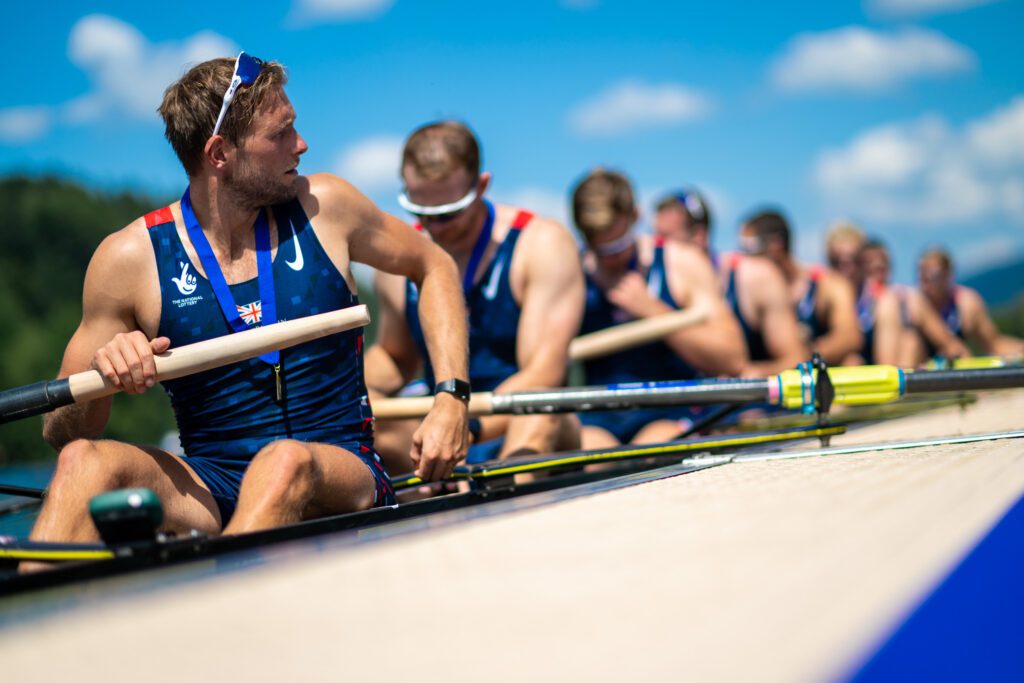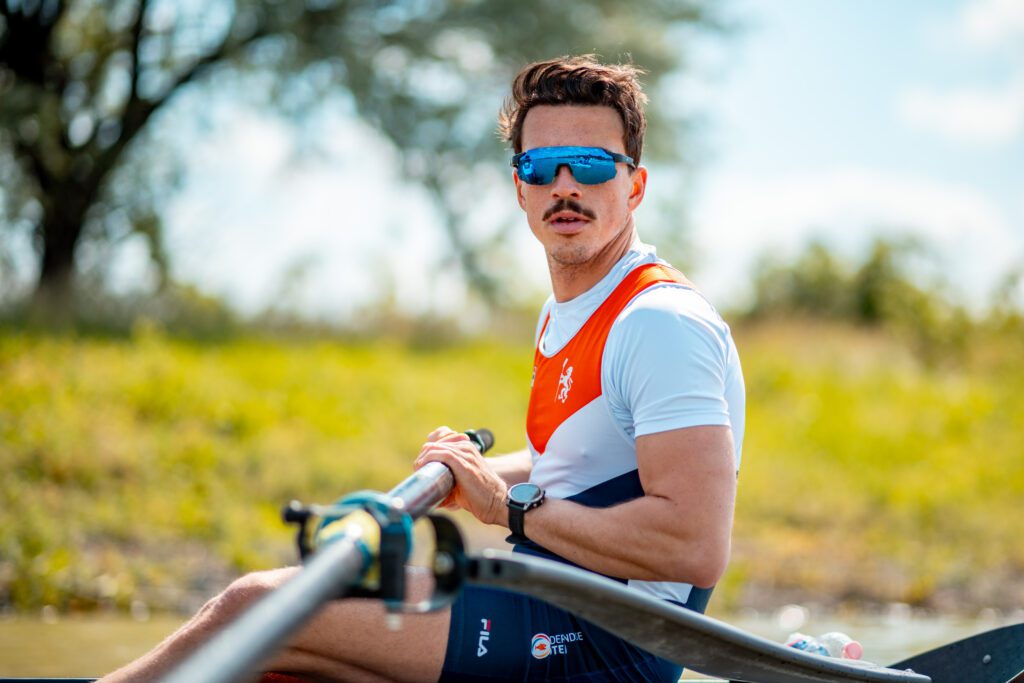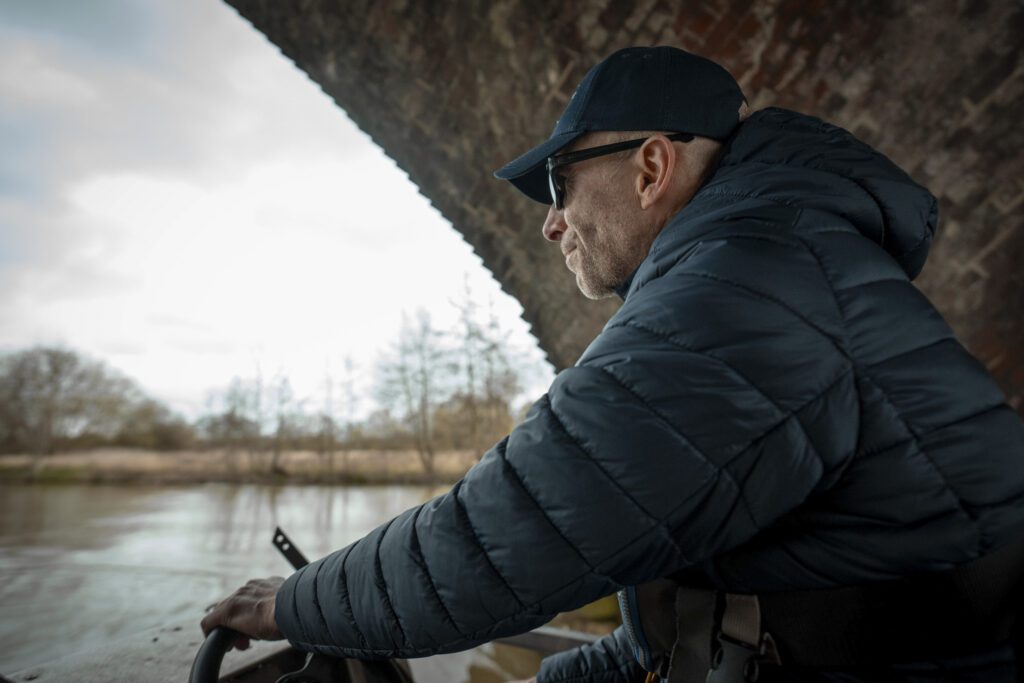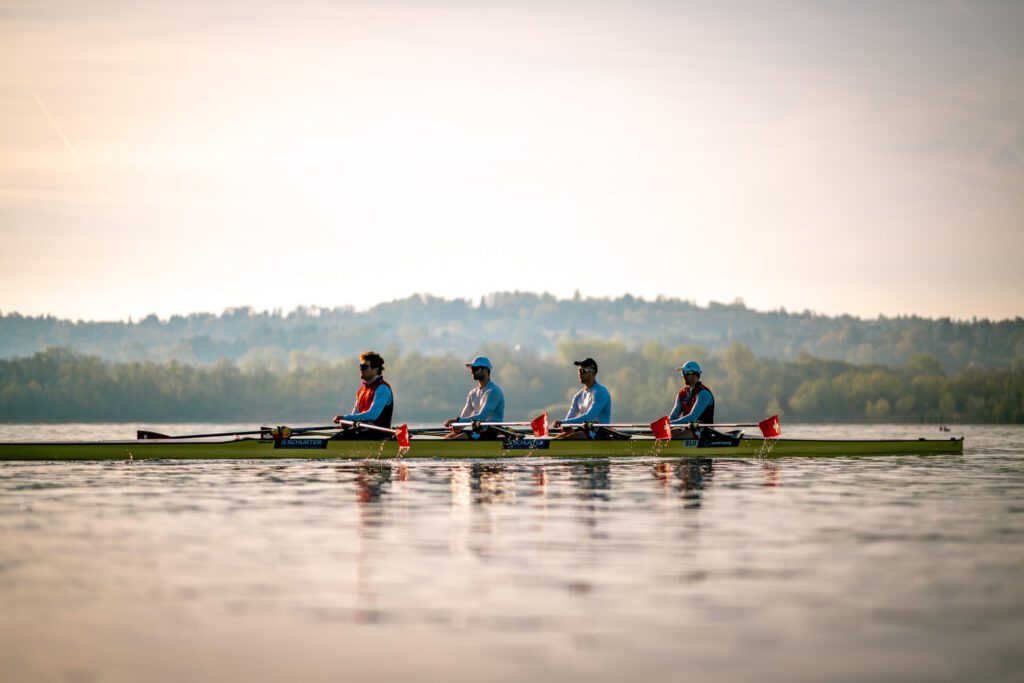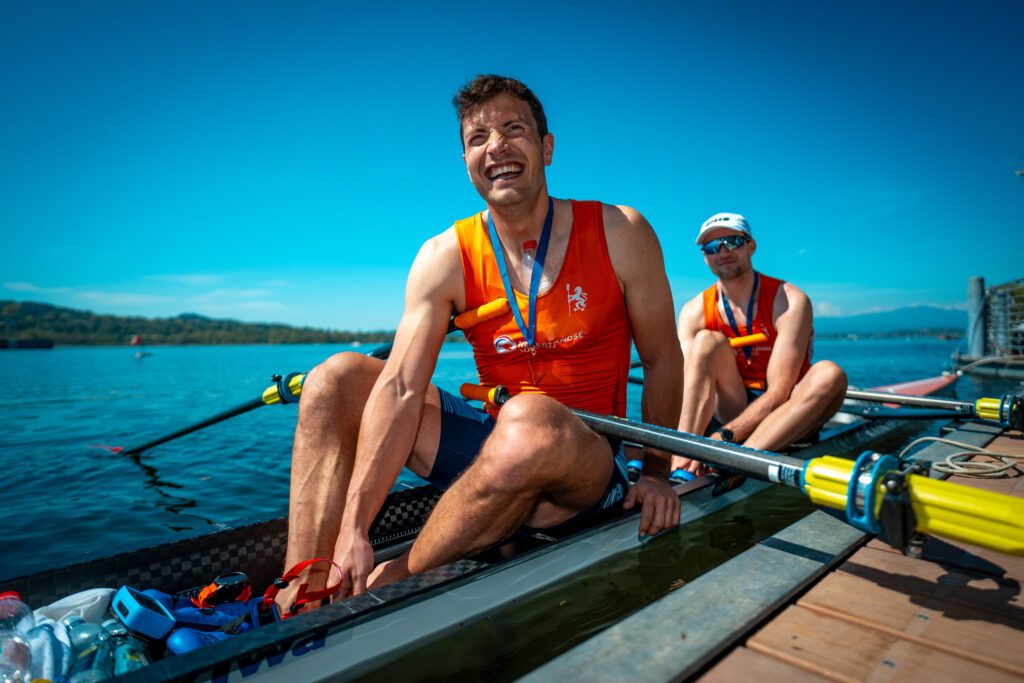A resurgent Lucerne Regatta closed with Olaf Tufte being given the prestigious Thomas Keller award, Australia taking the women’s eights gold for the first time on the Rotsee, and the Dutch collecting the overall World Cup team trophy despite having only lowly club crews at the regatta. The Dutch also took four world cup trophies, but the regatta belonged to Britain who claimed seven golds to top the medal table, whilst Australia and Germany had one Olympic-class gold each, the latter also winning a clutch of silvers.
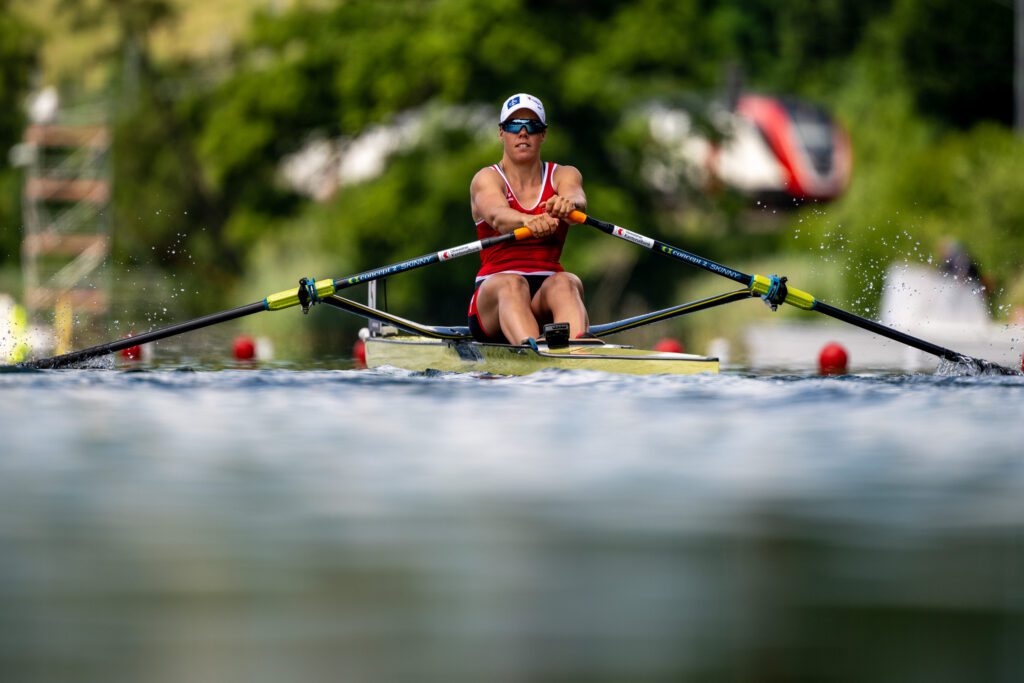
Photo SUI W1x
Credit Benedict Tufnell
As well as GBR versus Australia in the crew boats (of which more later), one of the more interesting match-ups was Australia v Germany v the local star Jeanine Gmelin in the women’s singles. Gmelin, who is only a few months into full-time training after her prolonged post-Tokyo rest, did brilliantly well in the circumstances to stay close to rising stars Alexandra Foester (GER) and Tara Rigney (AUS) who had both started quite slowly but gained speed and advantage as they steadily saw off the older scullers. At 1500m gone Gmelin was the leader with Zhang Ling still hanging on, but as the Chinese sculler faded away the German began to gobble up the ground, making it a three-way charge to the line.
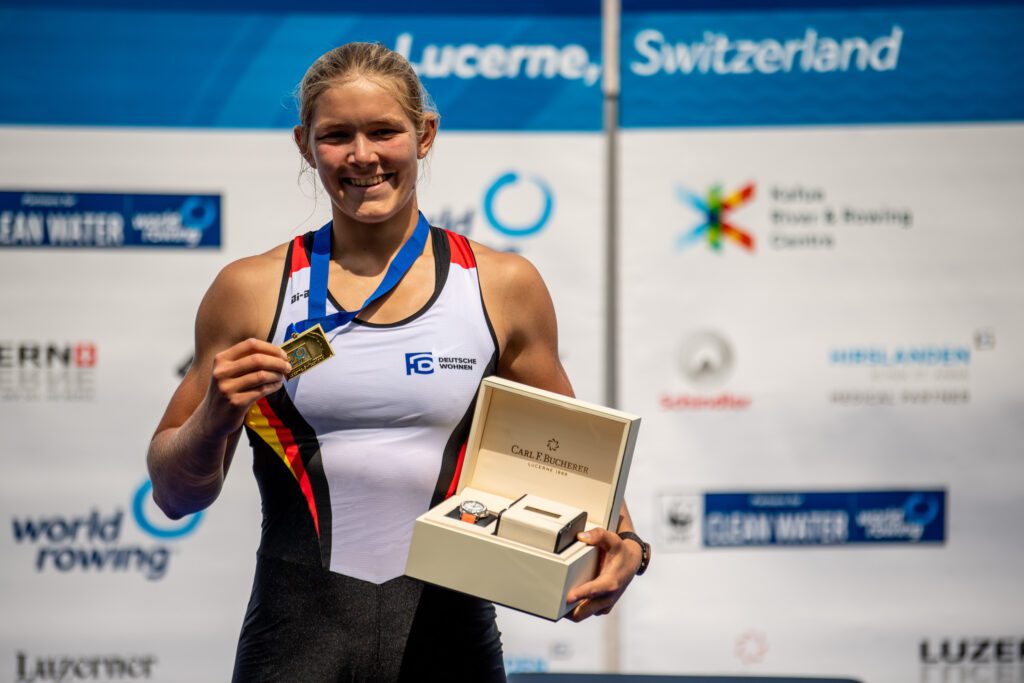
Photo GER W1x
Credit Benedict Tufnell
“I knew the last 500 was going to be a challenge, the German’s got an insane wind and I could see her coming out of nowhere”, said Rigney. Foester carved through her and then Gmelin, who ended with bronze a small distance behind the sprinting Australian. “It’s an interesting mix between experienced athletes and young aspiring ones”, said Gmelin. “I have to focus even more on myself because I don’t know what to expect, and I’m still missing specific bits such as the back end of the race.” We are yet to find out who else will join the singles club this season, or to see world leaders such as Emma Twigg, who caught Covid last week, race this year, while Karolien Florijn was part of the Dutch senior team staying away in preparation for the Europeans next month.
“It was one of those moments where our idols become our rivals.”
Caleb Antill
The men’s singles was lacking some big names too, particularly Oli Zeidler and Melvin Twellaar, and in their absence Briton Graeme Thomas claimed the M1x crown forty-five years to the day since Tim Crooks became the first Brit to do it here. “I did not expect to be in a good position at 1000m, I expected to be in the middle of the pack”, said Thomas. “I thought I’m not going to do what I always do, grab a length then let people creep back while I take a breather, I’m going to keep my foot on the gas and see what happens”. What happened was that Bulgarian Kristian Vasilev, who had fallen into place behind him, had a go as the buoys turned red, but Thomas was able to shift the rate up another gear and hold onto victory while Germany’s Marc Weber ended up third. It was Vasilev’s first ever medal, and he thinks he will now stay in the single for the rest of the season.
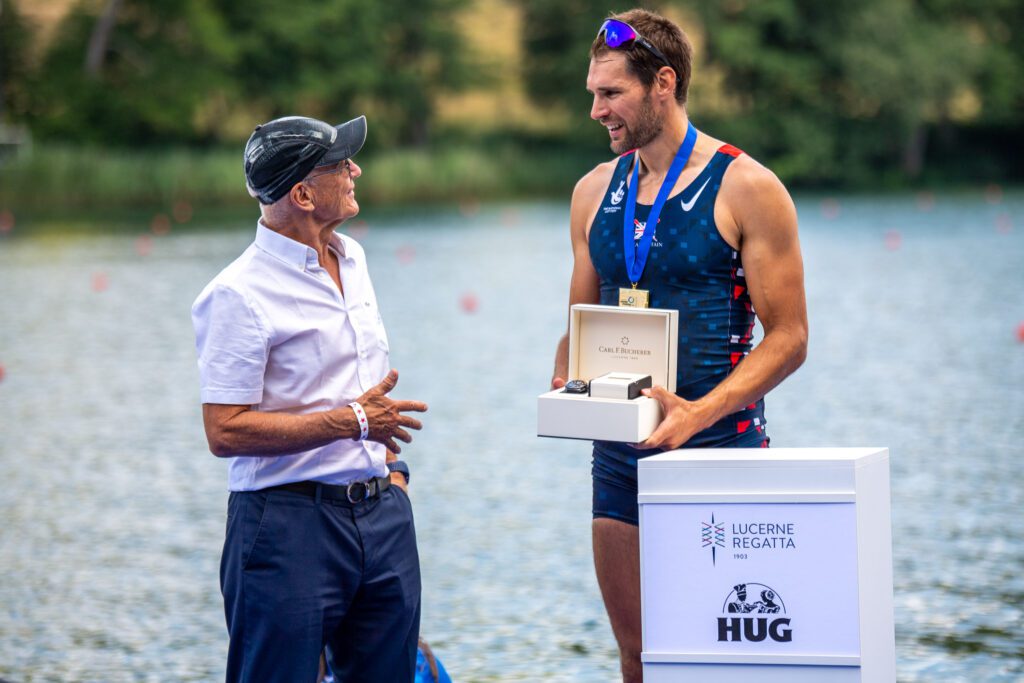
Photo GBR M1x
Credit Benedict Tufnell
Britain also had two terrific fours results, gold for the women by emphatic clear water (though Romania briefly hit a buoy near the line), and for the men after rowing in understated yet inexorable fashion through the high-rating Australians. “Three Olympic medallists in the boat, they beat us last week at Henley Royal by I dunno, a couple of inches, so it was good to get one over on them”, said Matt Aldridge. “Before the race we’d realised our best weapon was our middle thousand”, said stroke Freddie Davidson. It certainly was: for several minutes and despite rating much lower the British four was moving a metre per second quicker than Australia so the score is now one-all with the worlds yet to come. For the British women a six-second gap back to Romania and New Zealand with much of being taken in the first 500m, was vindication of their new training regime under recently-appointed head coach Andrew Randell. The quartet had also been part of the HRR-conquering eight last weekend, and despite the recent racing managed to take four seconds off the W4- world cup best time in the final, in a very light tail-wind.
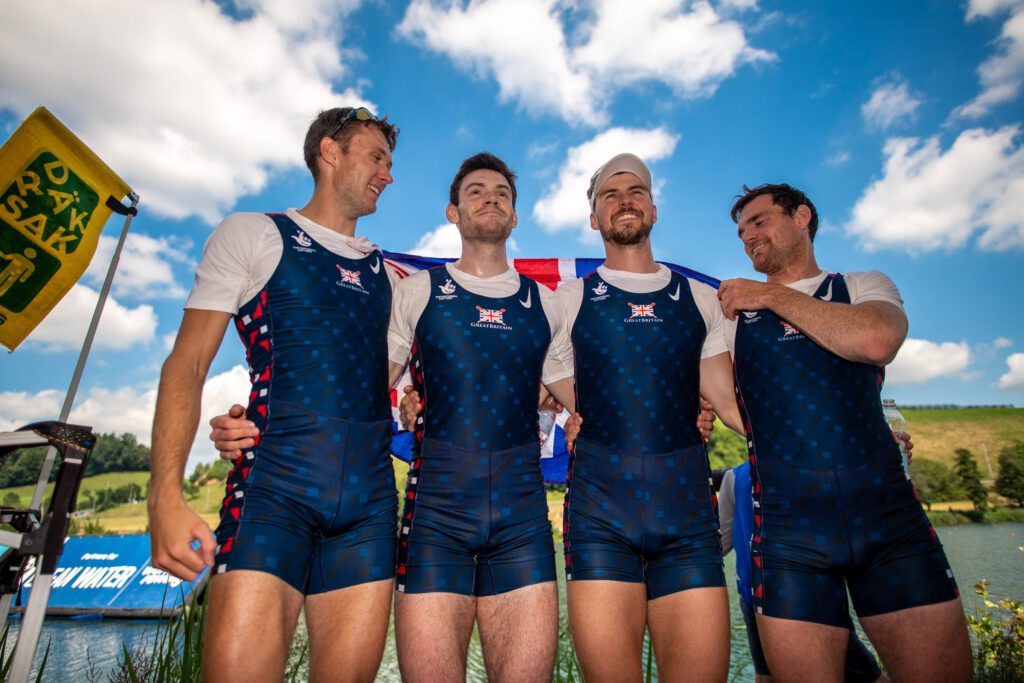
Photo GBR M4-
Credit Benedict Tufnell
The GBR men completed their sweep of sweep events with gold in the men’s pair, Ollie Wynne-Griffith and Tom George completing their bid to stay in this boat type with a gold over Australia, while Henley Royal winners New Zealand left queries as to their health hanging in the wind, after being outpaced and ending fourth. Harley Moore and Alex Hill (AUS), put in the pair after injuries, have hit on a rather good combination, so would also like to stay there, while Serbia’s duo of Martin Mackovic and Milos Vasic have been consistently good. “Hopefully I’m motorbiking a bit less round the back end [now]”, said Wynne-Griffith, who switched from bow to stroke side earlier this year. “As the rate comes up I revert to my old side. I feel like we’re getting better and better and stronger and stronger every race.”
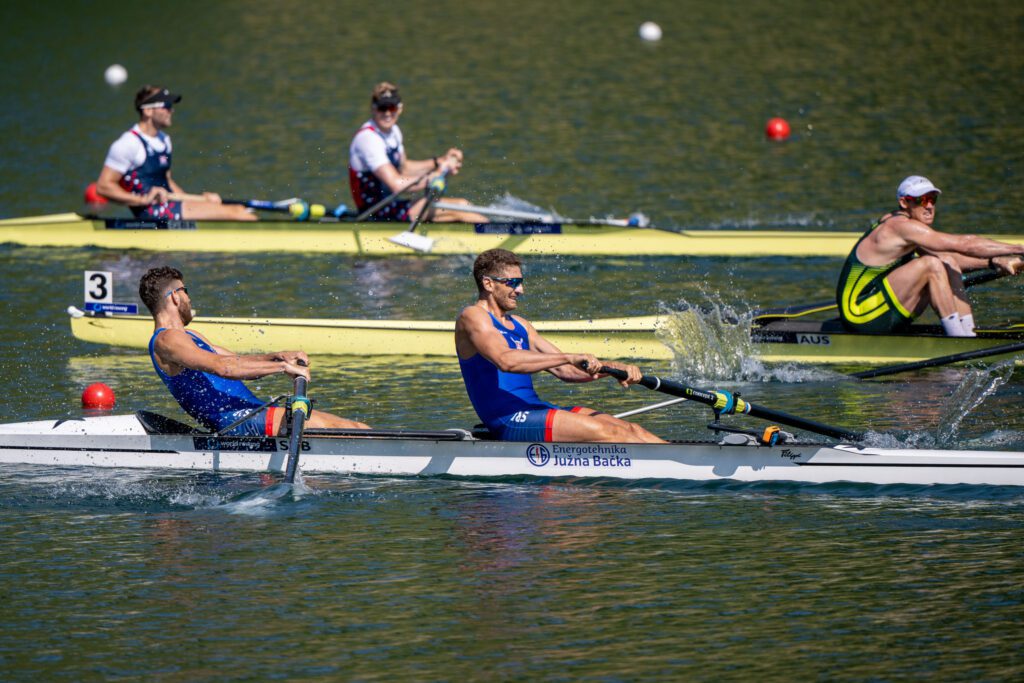
Photo SRB M2-
Credit Benedict Tufnell
The lightweight margins between gold and silver were very close, Britain just about managing to hold off a major surge from FRA in the LW2x (margin 0.28 seconds) and Italy giving their selectors a headache after Pietro Ruta and Gabriel Soares beat Stefano Oppo and Niels Torre by 0.32 seconds having just burst through Norway. “I’m the sprinter but Pietro is a machine”, said Soares. With five excellent lightweights for two Olympic-class places there are decisions to be taken, though knowing Italy they may yet decide to do the lightweight quad instead.
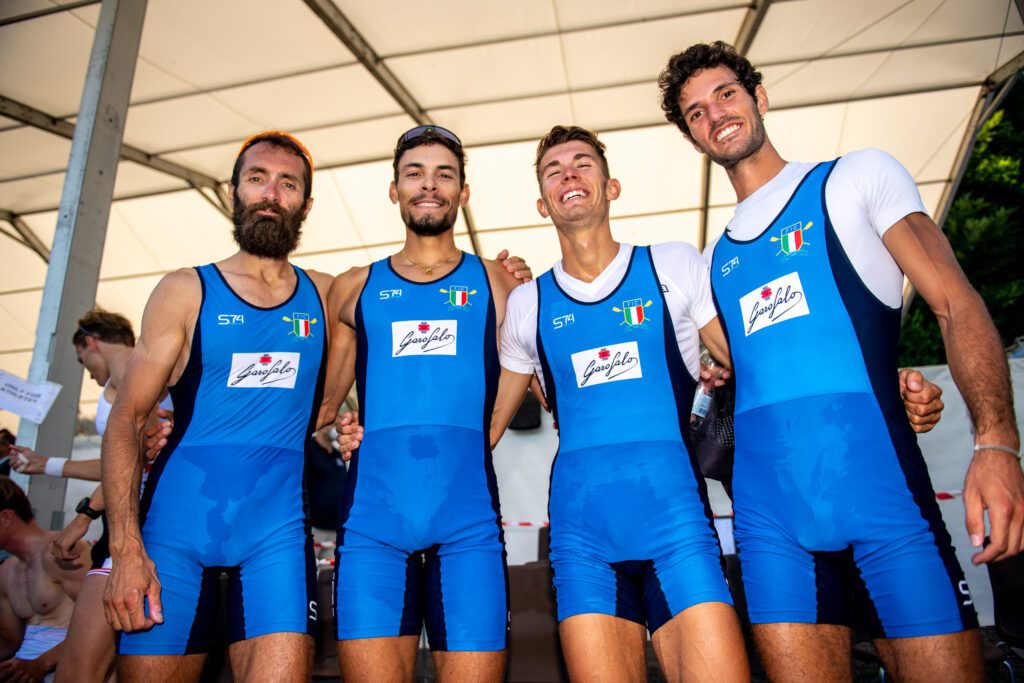
Photo ITA1 and ITA2 LW2x
Credit Benedict Tufnell
The LW2x race was a whack-a-mole contest, GBR constantly having to fend off little but important pushes from the Olympic silver medallists, until the French launched a proper late sprint to the line which just fell short. “We’re happy with the result because it was the first strong race since Tokyo”, said Claire Bove. Britain now also faces a difficult selection problem, all three of their lightweight women having won impressive gold here.
The only crew winning all three world cups this year was the Sinkovic brothers’ double, taking yet another gold in the M2x despite the best efforts of Australia’s David Bartholot and Caleb Antill. “It was one of those moments where our idols become our rivals”, said Antill. “Pulling up next to them going through 500m was a crazy experience and it was great to be next to them for at least some of the race”. It was better than that: Australia briefly led the Croatians and kept their heads in a helter-skelter finish which saw them get within a second of the normally untouchable Sinkovics. Kiri Tontodonati in Italy’s women’s double beat her long-time heroine Donata Karaliene (LTU) to the bronze, but Romania’s exceptional duo of Ancuta Bodnar and Simona Radis were unsurprisingly smooth and calm to the gold, well clear of any trouble once they’d dealt with the quickest starters, Germany.
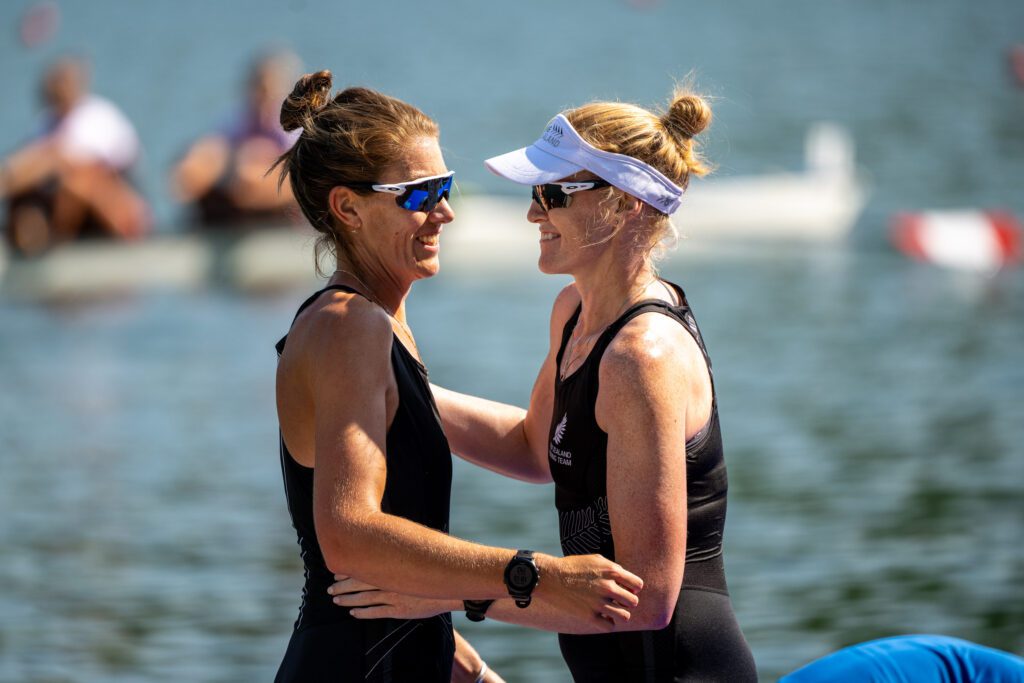
Photo NZL W2-
Credit Benedict Tufnell
It was a different experience for legendary Kiwi oarswomen Grace Prendergast and Kerri Williams (neé Gowler), who were nearly rumbled by Romania’s W2- of Ioana Vrinceanu and Denisa Tilvescu: the 0.11 seconds between silver and gold must be one of their closest ever though NZL appeared unable or unwilling to lift their rate properly to defend the win. “The last metres are very good for me and Ioana”, said Tilvescu, “so we are happy with second.” The ROU duo then went and doubled up into their women’s eight, which added a bronze medal to the nation’s tally, nearly catching Canada who had already been comprehensively rowed through by the rampant Australians. It was a first ever W8+ victory at the Rotsee for the green and gold brigade, though the Canadian crew had always planned to treat the race as a 1500m piece and then just hang on. The men’s eights was a straightforward demonstration of speed by GBR over a new German eight still finding its feet after many retirements, with Australia initially managing to match the British pace but then left behind by the longer, slower but more effective GBR rhythm.
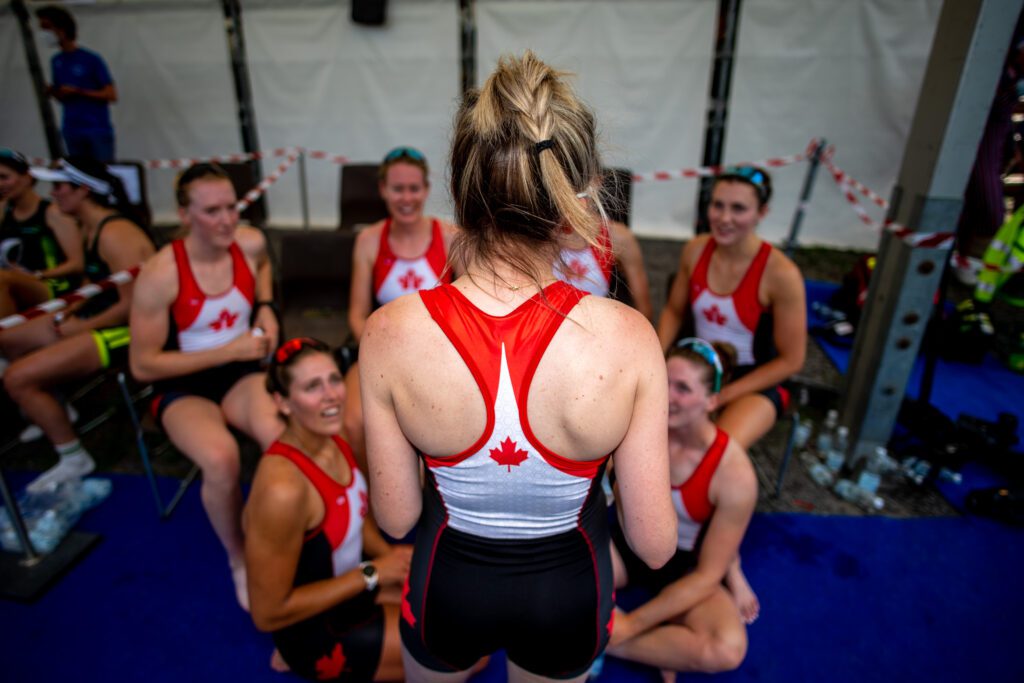
Photo CAN W8+
Credit Benedict Tufnell
“I’m the sprinter but Pietro is a machine.”
Gabriel Soares
China’s quads, winners last week at Henley Royal, had mixed fortunes. The women showed their squad strength with another win, virtually even-splitting to stay clear of Britain even as the latter were closing confidently in the final stages. The men had a late medical substitution and ended sixth in the A-final, while Poland’s quad were fully in charge for the third race in the competition, leading Italy the entire way and barely having to raise the rate to hold off the scramble for minor medals behind them.
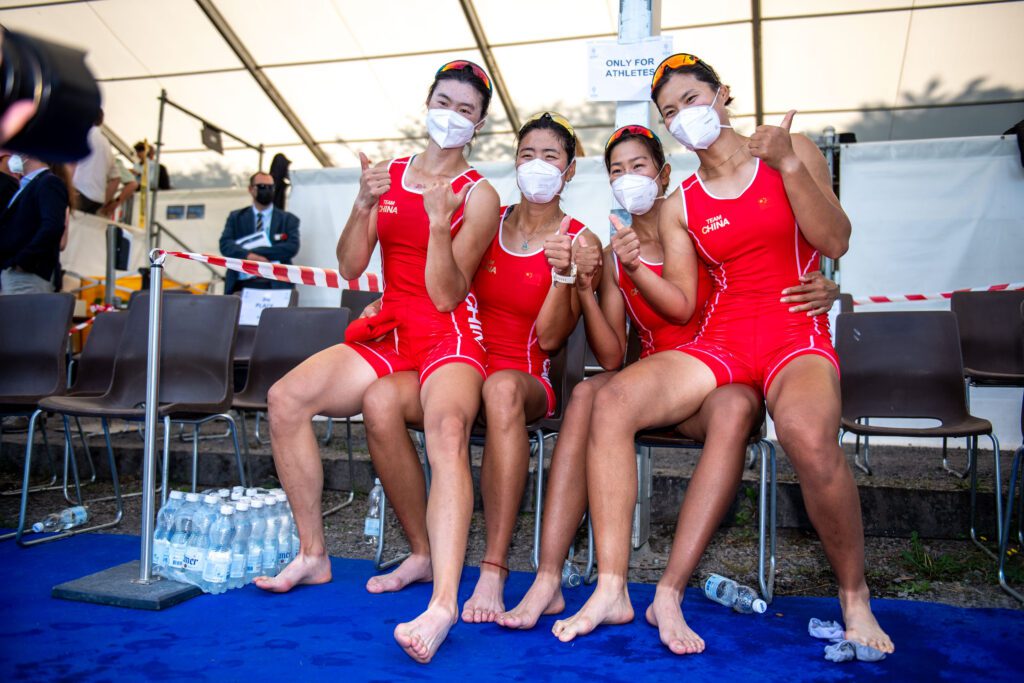
Photo CHN W4x
Credit Benedict Tufnell
For some, departure now back to their home continents. For the Europeans, four weeks until Munich. We can’t wait.
